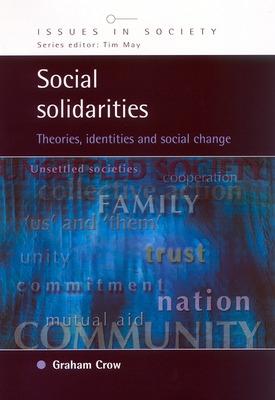Issues in Society S.
1 total work
* What is the significance of social solidarity?
* Has social change undermined the potential for people to come together and act coherently?
* What can we learn from comparing the solidarities of families, communities and wider societies?
Social solidarity is important in many areas of our lives, or at least in how we wish our lives to be. Family and kinship relationships, community life, trade union activity and the identity politics of new social movements are just some of the numerous ways in which social solidarity features in contemporary social arrangements. This book explores the ways in which people strive to come together and act as a coherent, unified force. It considers the arguments of those who claim that solidarity is increasingly fragile, and of those who are concerned to revitalise solidarities in our unsettled societies. The author shows how social change can be understood in the context of the limitations as well as the potential of the pursuit of solidarity, drawing on research findings on social relationships in families, communities, and the post-communist world. Written with undergraduate students and researchers in mind, Social Solidarities will be an invaluable text for those studying social theory, and family, community or comparative sociology.
* Has social change undermined the potential for people to come together and act coherently?
* What can we learn from comparing the solidarities of families, communities and wider societies?
Social solidarity is important in many areas of our lives, or at least in how we wish our lives to be. Family and kinship relationships, community life, trade union activity and the identity politics of new social movements are just some of the numerous ways in which social solidarity features in contemporary social arrangements. This book explores the ways in which people strive to come together and act as a coherent, unified force. It considers the arguments of those who claim that solidarity is increasingly fragile, and of those who are concerned to revitalise solidarities in our unsettled societies. The author shows how social change can be understood in the context of the limitations as well as the potential of the pursuit of solidarity, drawing on research findings on social relationships in families, communities, and the post-communist world. Written with undergraduate students and researchers in mind, Social Solidarities will be an invaluable text for those studying social theory, and family, community or comparative sociology.
